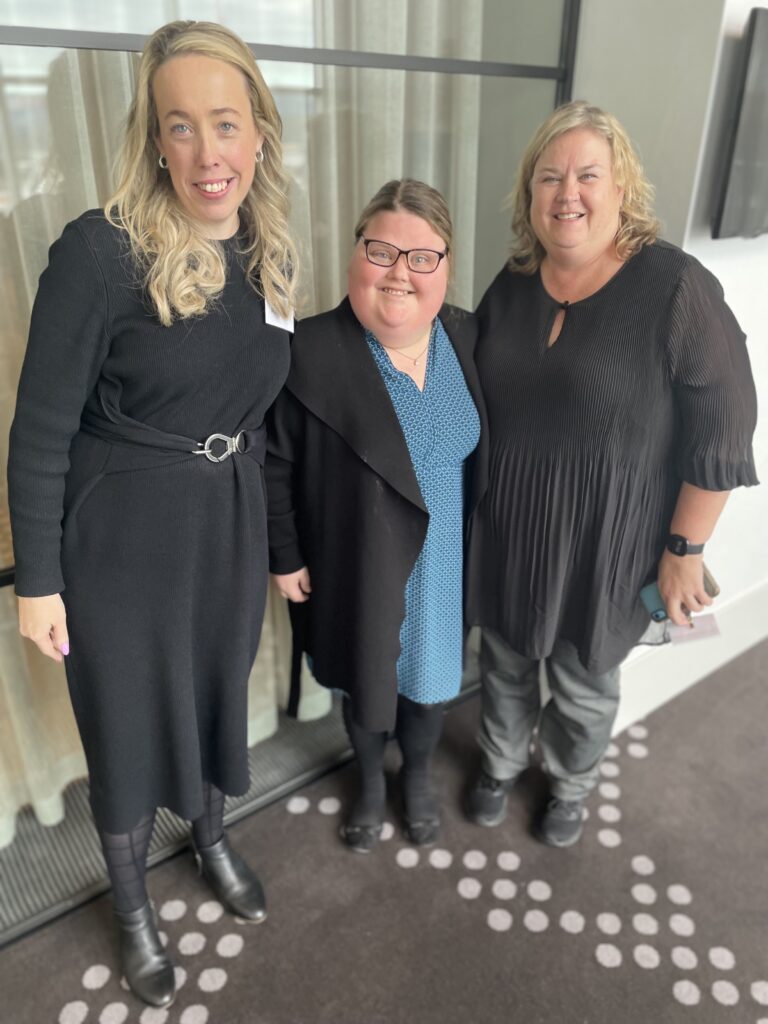Brooke Canham, Policy Officer at Inclusion Australia, shares her experience of her first meeting since joining the NDIS Intellectual Disability Reference Group
Speaking up at the IDRG
The IDRG is a group of people with intellectual disability, academics, advocates, providers and parents. The group was formed in 2015 to make sure the voices of people with intellectual disability are heard more clearly by the NDIS. The IDRG makes the NDIS more inclusive for people who have an intellectual disability. Their lived experiences highlight of what needs to change and ways to make things better and more equal within the NDIS.
In August, I travelled to Adelaide because I am a part of a group called the Intellectual Disability Reference Group (IDRG). They held their August meeting in Adelaide.
When I arrived at the meeting, we had morning tea straight away. We had the chance to talk to some of the members and I introduced myself.
We received a file of the papers in colour-coded folder. This made it easier to understand what people were talking about. It made it easier to get to the page I needed, as there were page numbers listed in the easy read file.
We all introduced ourselves around the table and spoke about what we do and where we all live in Australia.
During the meeting, the main things the group talked about were:
- Employment
- Making the new Supported Decision Making policy work
- Guardianship
- The justice system

I think the IDRG is important because it gives people with intellectual disability a platform to have their voice heard and share their ideas about the NDIS and give advice to the NDIA.
There are lots of things I am looking forward to as a member of the IDRG:
- Having my voice heard and opinions heard and respected.
- Have some more face to face meetings and more travel as this helps my independence grow.
- Having more in-depth conversations with the members
- Meeting more people who are on the IDRG.
- Hearing from past people who were on this group before about their experiences on the IDRG.
The biggest thing I think I can contribute to the IDRG is my voice and therefore being heard at these meetings. I feel like I get my voice across while speaking in this group and am able to share my opinions.
I think the IDRG’s biggest strength is that it brings together different people with intellectual disability from all different backgrounds to share their lived experiences. This can help make the NDIS and other parts of Australia more inclusive of people with intellectual disability.
It’s important that the NDIA gets to hear from different people and that the IDRG members are able to speak up and also getting the chance to disagree with each other—this means the conversation is very strong!
My hope for the IDRG and the impact we can make into the future is:
- Making the NDIS more accessible and make it more inclusive and more accessible for people with an intellectual disability.
- Making more accessible information in an Easy Read for people with an intellectual disability.
- Trying to make mainstream services more inclusive.
- Making things more accessible for people with disability so they can better understand and focus on how the planning works – breaking it down into steps.
